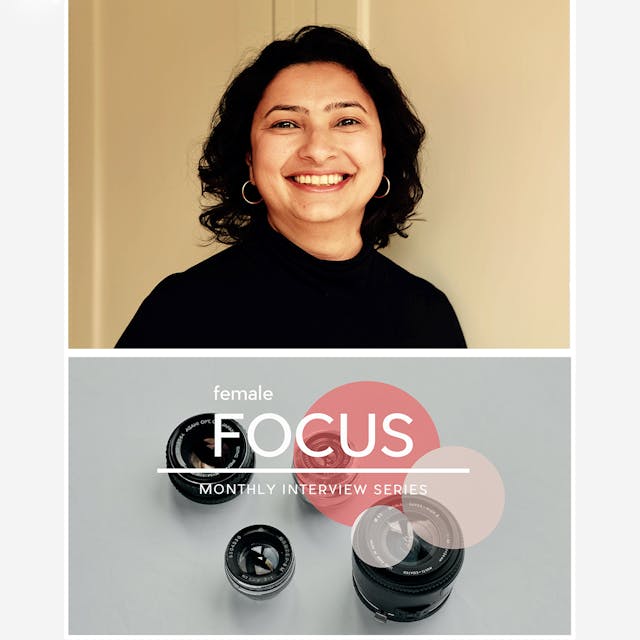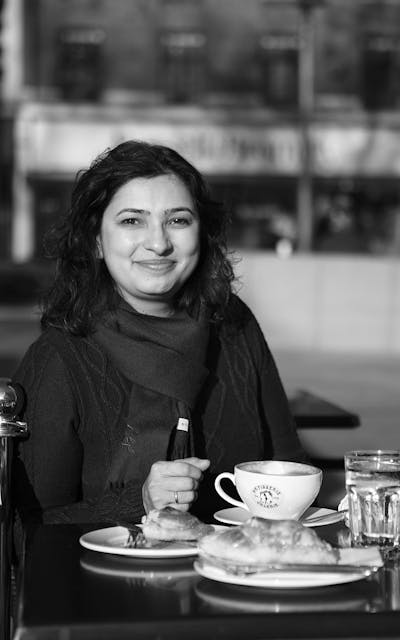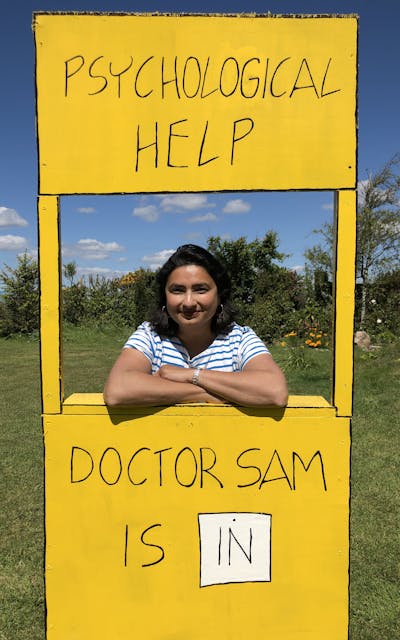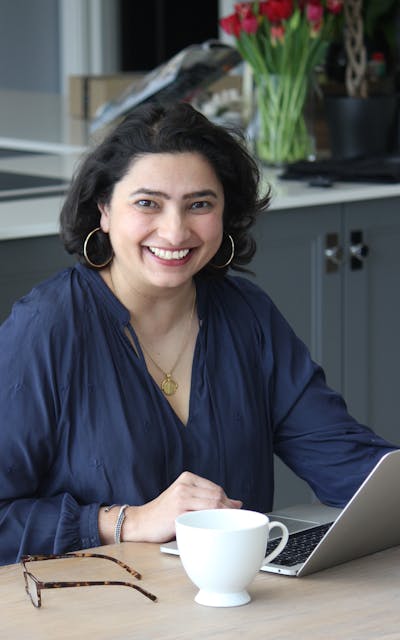Female Focus Interview: Dr Sam Akbar
November 27, 2020

Dr Sam Akbar is a clinical psychologist specialising in treating refugees with PTSD who have been tortured, survived war or sexual violence. She trains and teaches other psychologists in treating PTSD from Ireland to Iraq. In addition to working with refugees, Sam also writes a newsletter, The Mind Minute, in which she shares practical and quick psychology tools and techniques to help busy women enhance their well-being in under 60 seconds. The Midult describes her as a Well-Being Wonderwoman and she does, in fact, own a cape.
She has recently signed a book deal with HarperCollins for 'Stressilient: How to Beat Stress and Build Resilience' and publication is scheduled for spring 2022.
Before you trained as a clinical psychologist you were a documentary producer for the BBC and Channel 4 - what drew you to documentary filmmaking initially and did you find that being female was a disadvantage or did it not make a difference to you personally?
The cinema has always been my big love. When I was at university, I really thought that I would love to work in film in some way. I wasn’t, at that stage, particularly thinking about documentaries. After university, I got some work experience on a current affairs documentary - I had always been interested in politics - and then it grew from there. I look back on it now, and I think there was so much sexism around, I just didn’t realise that’s what it was! It wasn’t blatant, screaming discrimination, just assumptions that people would not accept now.
Was there a pivotal moment that initiated your career change or was psychology something that always interested you?
Great question. Documentary is about psychology, really. We are all interested in what makes people tick. I think what didn’t suit me was the entirely freelance life in an age before the internet. The community and support that exists now for freelancers just wasn’t there, and it was easy for me to feel lonely and isolated when I wasn’t working. I also realised that the long process of making documentaries was beginning to frustrate me - I wanted to be able to help people more directly and quickly. So I thought, what job allows you to be interested (nosey) about people but also helps? Turns out that it was clinical psychology. It is a much better fit for my personality. In addition, I really looked at my life at 30 and thought - will it be any better when I am 35? And I thought ‘no, not if I stay in this documentary world’.
Are there any experiences from your producer days that you can draw on and find useful in your work today?
Absolutely. I think being a producer has made me a better psychologist. You are used to dealing with obstacles, and talking to people from different walks of life all the time. You can be adaptable in any situation. I also think you have a propensity to wanting to get things done.

What does your typical day as a clinical psychologist look like and how has the way you work changed over the course of the past few months (and the pandemic)?
My typical day pre pandemic started with a nice hello and check in with colleagues! We are a very close team - which we need to be given that we treat refugees with PTSD. Then I check none of them have been using my mugs, about which I am very particular. They, of course, like to torment me by not following my mug rules or hiding them from me. I usually supervise trainees in the morning about their cases, and then move on to seeing my own patients. There’s also a lot of work in developing the service - making little information films for our patients, or teaching and training other psychologists in the UK and abroad about PTSD. It’s a really great mix of work. Now I pretty much do the same stuff but via Zoom. I am actually going back into the office a couple of times a week, and it is a massive relief.
Your newsletter ‘Mind Minute’ is specifically designed for busy women who want to improve their well-being but don't have the luxury of time - can you give us a taster of one or two psychology tips you share on there?
Sure, the kind of things I share are usually tools you can use really quickly so you don’t get caught up in a rut. So I might suggest ways to notice your thoughts rather than challenging them. For example, instead of getting caught up with ‘I am not competent enough to do this project’, I would suggest a technique where you say ‘I am having a thought that I am not competent to do this project.’ The second one allows you space and choice to take meaningful action and not get tangled in your thoughts.

You are currently developing a course that will provide science-backed psychology tools to help female founders and freelancers manage stress and build resilience, which sounds like a brilliant resource that a lot of women will find useful. Why do you think this type of service is important, particularly today?
I am! And I am actually also writing a book on stress and resilience which will be published by Fourth Estate in 2021. I think there’s a lot of stuff out about mental well-being which is not backed by science. I want women to get the best science-backed tools to improve their lives at a time when stress levels are very high.
So many women are stuck in unfulfilling 9 to 5 jobs even though they would love to start their own business - what advice would you give a woman who is keen on making the jump into the world of self-employment?
I think there are 2 steps. The first is to take time to understand your personality and how you can thrive in working for yourself. Don’t neglect the psychological and emotional changes that moving from a 9-5 can entail. The second is practical - talk to as many people you can who do the job you would like. Research, research, research. Find out what their day looks like, find out how they got to where they are. Then make a step-by-step plan about how you will start your own business or work for yourself. I am naturally more cautious, so maybe this isn’t for everyone, but I think a psychological, emotional and practical strategy are the keys to finding freedom in your work!
Is it more important to be liked or respected?
I want to say respected, but I know I want to be liked.

How do you unwind and how important is self-care to you?
I like to walk a bit everyday, ideally near nature, and it really helps me clear my head. I also just love being at home and watching TV with my family. In lockdown, I was doing a lot more art, and that really improved my mood. I will always make sure I get enough sleep! Self-care is important but a lot of the time people think it needs to be about indulging yourself with baths or candles (all lovely) but actually I think it’s about understanding yourself, moving your body, resting your body, eating well and being in nature as much as you can.
The three things you would take to a desert island?
- My Snoopy. I have had him forever and will not be parted from him.
- The Pursuit of Love by Nancy Mitford, which is my favourite book.
- Good quality milk chocolate. Lots of it.
If you like to work with Sam head over to She Minds or follow her on Instagram @drsam_akbar